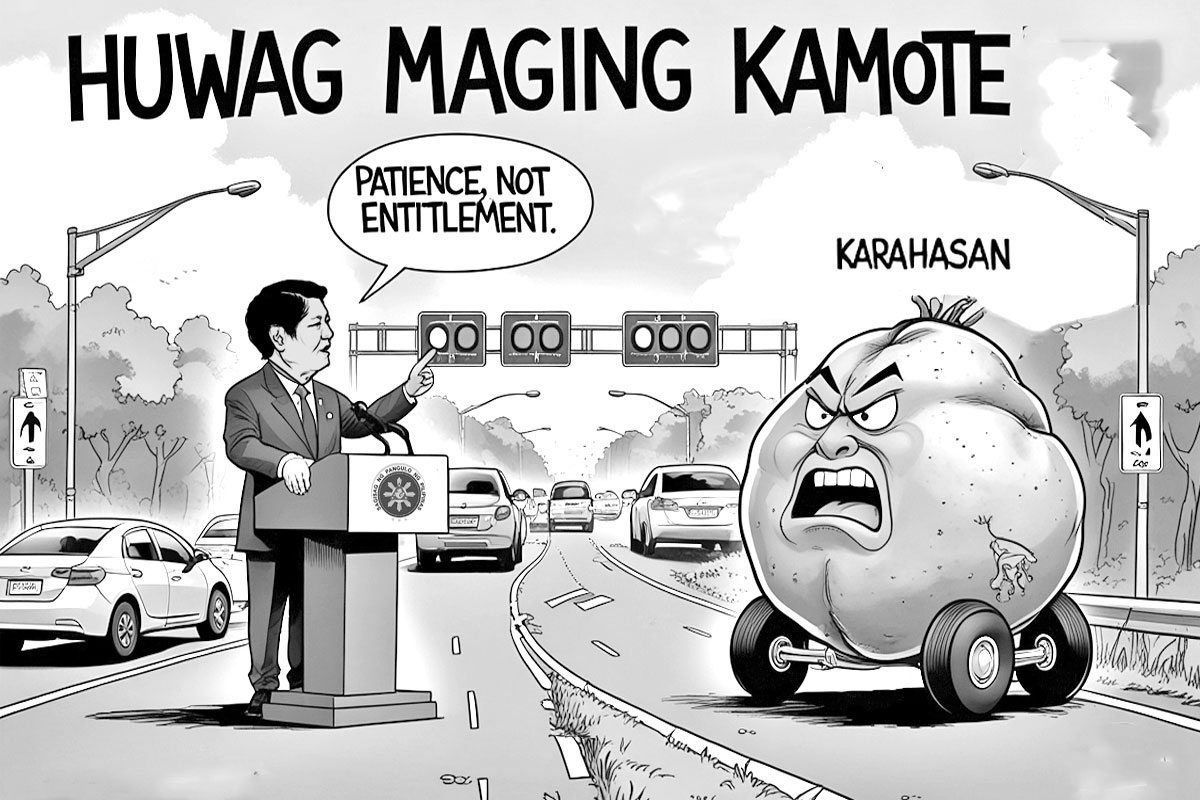
Firing up Mindanao economy
WITH peace and order slowly taking shape in Mindanao, the government is preparing the region for robust commerce to fire up its economy.
And to do this, roads in Mindanao have to be improved. The administration of President Ferdinand r. Marcos Jr. has this covered.
The National Economic and Development Authority (NEDA) Board, chaired by President Ferdinand R. Marcos Jr., recently approved the Mindanao Transport Connectivity Improvement Project (MTCIP).
The project is from the Department of Public Works and Highways (DPWH).
According to the President, MTCIP is one of the main road programs for Mindanao that should proceed. He endorsed it for approval.
The NEDA Board granted the approval as President Marcos presided over the 21st NEDA Board Meeting at the Malacañan Palace.
DPWH Secretary Manuel Bonoan explained the MTCIP will support the department’s goal to enhance the transport network in Mindanao, benefiting the agricultural sector of the country.
The MTCIP is part of the master plan for high-standard Highway Network Development Project, which identified major projects that would be developed from north Luzon, central Luzon, Visayas, and Mindanao, Secretary Bonoan said.
The project should provide high-level traffic services by assuring high speed mobility and safe travel to vital transport socio-economic activities for development of the regions and the country as a whole, he added.
The MTCIP will also improve the transportation network in Mindanao, facilitate the transport of agricultural goods from isolated areas, preserve the long-term value of road assets, and minimize the expenses associated with routine and periodic road maintenance.
It will also interconnect Northern Mindanao, Davao and Soccsksargen regions.
The project will be funded by the World Bank (WB). It will have at least five components before its completion in 2030.
The official said the project will continue the rural roads program beyond 2030, noting these projects have been economically viable with internal economic benefit.
Meanwhile, the NEDA board also approved the “Philippines: Health System Resilience Project, Phase 1” program of the Department of Health (DOH).
The program will enhance health emergency prevention, preparedness, and response in vulnerable areas in the country.
President Marcos lauded the DOH for the program as it serves as an “application of lessons learned during the pandemic.
It also helps to recognize the gaps that were identified” during the global health emergency, he added.
He said the program will rebuild a resilient health system, supporting the vision outlined in the Philippine Development Plan 2023-2028.
It is also geared towards building an enabling environment, project management, monitoring and evaluation, and Contingency Emergency Response Component (CERC).
The project costs PhP27.921 billion. It will prioritize areas in the country with poor access to healthcare.
The DOH has already identified 17 provinces for its pilot run.
**
For comments, please call or text 09569012811 or email [email protected]





















